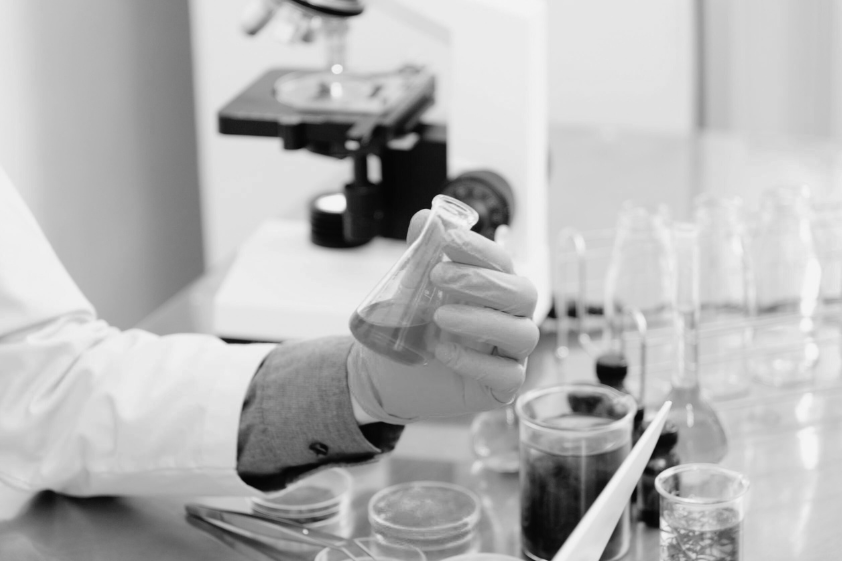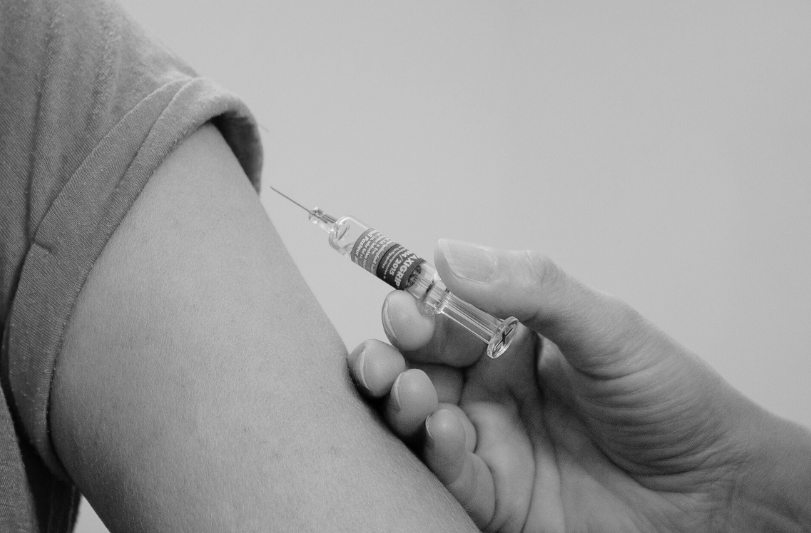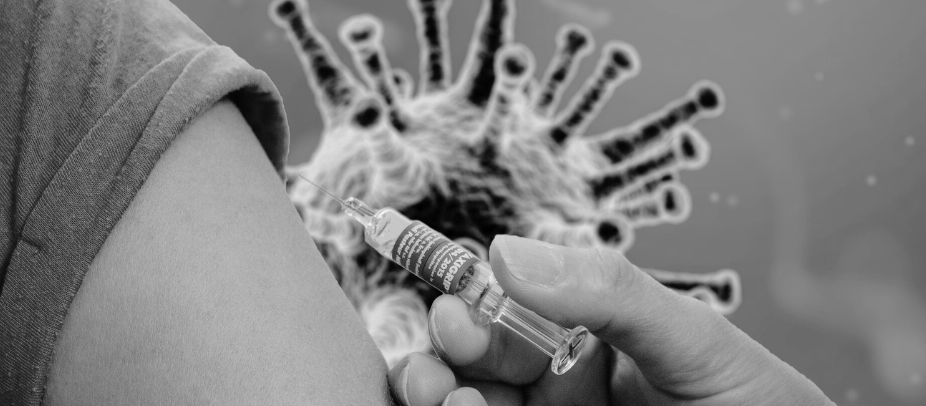
Blog 6 in a series of blogs navigating the issues around vaccinations
Significant good has come from vaccine development, as we’ve seen in previous posts in this series. Christians should be advocates for development that is ethical and without moral compromise. Most of all, we need to be assured that our promotion and use of vaccines is something that honours our God, and fulfils our responsibilities as stewards of his creation. There are many issues that we need to understand about vaccines and immunisation programs. We’ve already looked at some of these issues in our previous blogs. In this post, we’ll be thinking about issues of consent, mandates and possible exploitation.
Decisions to support, or not support, immunisation programs can be complex and culturally nuanced. Both Christians and non-Christians are free to choose either not to participate in immunisation programs, or to use specific vaccines.
It is not helpful to generalise and label these choices as ignorant, nor is it helpful to use terms such as ‘anti-vaxxers’ in a pejorative way. More often than not, individuals make their decisions about vaccination after careful consideration and in good conscience. That should be respected.
However, if we chose not to vaccinate, we must also accept that we are responsible for the consequences, which may include not being allowed to participate in some public and community institutions.
Policymakers have the responsibility to ensure access to vaccines by all citizens who in good conscience want to use them. With regard to a Covid-vaccine, we know that a growing number of vaccines that pose no controversy are in development. Christians should advocate that governments support the continued development of these vaccines. There is, however, much discussion still needed to ensure that we understand the complexities of ethical decision-making, and that we are balancing costs and benefits. As Christians we should also understand the complexities of drug development, and strive to develop a nuanced view that honours God and loves our neighbour.
THE IMPORTANCE OF INFORMED CONSENT
Developing and using vaccines have issues that centre on the notion of informed consent.
Consent and voluntary participation are the cornerstones of medical ethics in general, and bioethics in particular. The main aspects of informed consent are that:
- all relevant information is fully disclosed;
- the person consenting must be of legal capacity and of sufficient intellectual capacity to understand the implications;
- the person consenting understands the information provided, and;
- the consent is voluntarily given.
Informed consent has been regarded as a basic requirement for research with human subjects since the Nuremburg Code and the Helsinki Declaration, in 1947 and 1964 respectively.
The Helsinki Declaration acknowledges that: “In medical practice and in medical research, most interventions involve risks and burdens.”
The challenge for national health programs is to balance individual autonomy with the common good of protecting our society. It’s clear that the principle of autonomy and mandatory vaccinations are in conflict. Vaccine hesitancy, lower vaccination access, and growing anti-vaccine movements have increased the number of unvaccinated individuals. This, in turn, has led to an increase in preventable disease across the world. This is a concern for public health protection: related outbreaks of diseases such as measles and whooping cough are increasingly reported. The Australian Institute of Health and Welfare provides regular updates on the burden of preventable diseases here. Governments have responded by trying to persuade their people to comply with vaccination programs. Imposition of fines or restriction of participation in community institutions like schools are among the common strategies used by governments to increase vaccination rates.
The principle of informed consent seems to imply that people are vaccinated on a voluntary basis. Yet in some cases vaccines are more or less mandated since parents know that failure to participate comes with consequences. In Australia, these consequences may be limited to children not being allowed entry into schools. But in other countries, the consequences are more severe and may include significant financial and other penalties. In France, for example, it is a criminal offence not to comply with vaccination schedules. The penalty can be prison time for child neglect. There is a serious tension, almost to the point of contradiction, in requiring vaccination and seeking informed consent.
There is also an emerging discussion about whether adolescent minors should be able to give consent for vaccination programs and healthcare without parental permission and knowledge. This is an important issue best discussed separately. But we can note here that any developments arising out of this debate will require significant changes to legislation.
The best outcome for informed consent with regard to vaccines is that parents are provided with all relevant information, so that they can then make an informed decision to participate, or not participate. However, for this to be a successful outcome, it’s imperative that community leaders advocate for relevant information to be more complete. It’s also imperative that community leaders be included in discussions on the ethics and on decision-making in the different stages of drug discovery, development and national program implementation. The implications for foreign policy must also be carefully considered. Healthy critical debate needs to be the foundation of large-scale implementation so that it enables the flourishing of all.
So what are the issues that Christians need to be aware of with respect to drug discovery and development today?
THE IMPORTANCE OF TRIALS
Vaccine clinical trials are essential to determine the safety of a vaccine. They usually include diverse population groups and control groups. It’s challenging, though, to test drugs on diverse groups of people and on vulnerable groups such as children, pregnant women and people who are immunosuppressed. In Australia, clinical trials are regulated by the National Health and Medical Research Council which enforces ethical principles for all research, and especially for vulnerable groups. Cost-value decisions are an integral part of medicine, from research through to clinical practice. This plays a significant role in influencing decisions about target groups for clinical trials. The safety of particular groups (children for example) when exposed to a disease needs to be balanced with the need to provide this group with an effective drug. Similarly, it is important to adequately test drugs in diverse populations so that developers can ensure that risks and adverse reactions are mitigated (read more in the UNAIDS guidance document for the HIV vaccine discovery). Another important consideration is that drugs are not rushed onto the market in response to a prevailing need. Failure to do adequate testing can have dire consequences. This was seen in the premature rollout of a Dengue vaccine in the Philippines in 2017 (read more here).
IMPLICATIONS FOR LOW-INCOME COUNTRIES
In trials, it is essential that the people participating understand informed consent and this can be challenging. This becomes more complicated when there are disparities between countries. Inequalities in income, and in scientific and technical capacities, can lead to unintentional power imbalances, and to possible exploitation of low-income countries and their poorer communities. Advocacy for ethical practice in clinical trials should therefore include plans for local community involvement in decisions regarding the clinical trial, as well as guarantees that when the drugs become available, they can be accessed by the communities in which they were trialled.
RISKS FOR DEVELOPING COUNTRIES
The increasing number of trials being conducted in developing countries is concerning, especially when participants do not understand the possible risks, the role of placebo controls and the options to withdraw. One study demonstrated that participants enrolled in a malaria drug trial in Mali in Africa had a poorer understanding of the process than did participants in the US.
COMMUNICATION ISSUES
Informed consent needs to overcome issues such as literacy, language and cultural barriers, and diminished personal autonomy (choice). Consent in trials using placebos has the further complexity that there can be the misconception that participation has personal benefit. The crucial issue around consent here is not about disclosure of information, but rather ensuring that potential participants have a full and realistic understanding of the trial.
STEM CELLS CONTROVERSY
Consent becomes an issue when considering also the cells and tissues used in developing and producing drugs. In our earlier blog, we discussed the use of fetal-derived cell lines [link]. There are also other cells used in drug research that we should take note of, such as stem cells. Embryos are the source of embryonic stem cells. These cells have the greatest potential to divide and form any other cell in the human body. Embryonic stem cells are considered especially useful for research to treat diseases where cells are lost or destroyed and not replenished, like Parkinson’s Disease. Embryonic stem cell research remains controversial because it relies on the destruction of embryos and/or the creation of embryos for research. For people who believe that life starts at conception, the moral status of an embryo is the same as that of a child or adult, and the destruction of an embryo to harvest stem cells raises a significant moral problem.
It is worth noting, though, that not all stem cells are from embryos. Adult stem cells and umbilical cord blood stem cells are widely used in research and clinical care. Their use doesn’t raise the same ethical concerns as the use of embryonic stem cells. However, adult stem cells and cord blood stem cells don’t have the same potential to divide and form any other cell type.
IVF ISSUES
Similar issues arise out of IVF reproductive techniques that involve embryo production – whether it be from the procedure itself or from embryo research to refine procedures. The use of human embryos is regulated by the Research involving Human Embryos Act 2002.
Many people hold a middle ground on the use of embryonic tissue. Some distinguish the early embryo as deserving of special respect as a potential human being, but say that it is acceptable to use it for certain types of research, provided there is good scientific justification, careful oversight, and informed consent from the woman or couple for donating the embryo for research. Others acknowledge that human life begins at conception, but consider that some research on embryos is acceptable for the greater good. These arguments are contradictory and deny the rights of the embryo. Embryos cannot give consent for their destruction. Notwithstanding the rights of the embryo, people who have frozen embryos remaining after infertility treatment may make a choice to donate these embryos to research. Here again there are issues about consent, for the woman donating the embryo as well as for the gamete donors (i.e. the sperm and/or the egg donor). As well as these issues around the use of whole embryos, there are ethical dilemmas about the use, in research, of a significant number of cell lines derived from human embryos.
THE HENRIETTA LACKS STORY
Issues of consent with regard to use of cell lines are not unique to the cell lines of embryos and fetuses. Use of adult cell lines, equally, should require consent. This was highlighted in the now well-known case of Henrietta Lacks, an African American woman who presented with vaginal bleeding in 1951 at the Johns Hopkins Medical Centre. Lacks was subsequently treated for cervical cancer and a sample of her cancer cells were used to create one of the most financially profitable cell lines (HeLa cell line) used in research today. The establishment of the HeLa cell line is considered one of the most important milestones in modern medicine and has been used extensively in a wide range of research from drugs to treat cancers to flu, with in excess of 17000 related patents. The cells are sold at approximately $US250 per vial with millions of vials in circulation. Permission was never sought from Lacks to obtain or use her cell samples, nor was it sought from her family, despite the sample being used for gene sequencing. Lacks died in 1951 at the age of 51. Lacks’ story is used frequently to discuss the issues of consent in medical education and research. (this YouTube video summarises Henrietta Lacks’ story). The use of her biopsy sample was not consented to by her family either. In fact, her husband refused to consent when he was contacted soon after her death. In spite of this, the sample was turned into a cell line and was used for years without the family’s knowledge. Following recent litigation, her contribution to science has been acknowledged.
TISSUE – A GREY AREA
Consent for the use of tissue in test samples still remains a grey area. If a tissue sample is taken as part of a routine biopsy, it can possibly be used without consent provided all identifying information is removed. The Australian Law Reform Commission has a detailed report highlighting the lack of legislation on the issue of genetic material and biological samples – read more here.

VACCINES: Where to source Australian data
In Australia, information on immunisation is provided through health care workers, schools, community centres as well as on the national immunisation website.
According to HealthStats NSW, in 2019, 94.7% of children in NSW were vaccinated (data here).
Immunisation is mandated by NSW Public Health Act 2010 which was amended in 2018 to strengthen the requirement for vaccination prior to entry into early childhood education and care.
According to this legislation, children who are unvaccinated because of their parents’ conscientious objection cannot enrol in childcare. In 2015, parental conscientious objection affected only around 1.15% of children aged 0-7 years in NSW.
This legislation does not pertain to children who cannot be fully vaccinated because of a medical condition or to those who are on a recognised catch-up schedule.
*Nalini Pather is a senior academic in medical sciences at the University of NSW. She holds a doctoral degree in cell biology and additional postgraduate qualifications in clinical anatomy, and university learning and teaching. Her areas of research include applied anatomy and medical imaging, medical education and ethics. Nalini serves on the Gospel, Society and Culture committee.

PART 1 in the series here

PART 2 in the series here

PART 3 in the series here

PART 4 in the series here

PART 5 in the series here

DISEASE AND MASS MORTALITY: There really is nothing new under the sun
Infectious diseases have marked human history with periods of massive mortality, such as the Plague of Athens, the 14thcentury Black Death, the 1918 influenza pandemic. During the last 30 years, we’ve also seen the emergence of several viral infections including the present SARS-CoV2 (Covid-19). Despite unparalleled advancement in medical technology, it is expected that new communicable diseases will continue to emerge.
Most of these emerging diseases involve viruses that transfer from animals to humans (so they are called zoonotic diseases). This has probably always been a source of new infections for humanity, though increasing human populations, global travel, migration and climate change are probably increasing the rate at which new diseases cross over and spread among humans.
Emerging zoonotic diseases threaten human health and life and can bring a great economic burden (as we are experiencing with COVID-19). The emergence of these diseases is unpredictable and it is unlikely that zoonotic viruses can ever be eradicated. However, in recent years there has been considerable research which now enables faster development of a vaccine when a new disease emerges. This investment, and the number of research centres dedicated to this work, are the most significant reasons why a Covid-19 vaccine is likely to be ready more quickly than vaccines in the past.
Vaccines are, and will continue to be, one of the most important tools for the prevention and control of emerging infections. The full extent to which vaccines have alleviated sickness is difficult to estimate, but there is no doubt that they have saved millions of lives. Smallpox alone was responsible for 300 million deaths in the 20th century, but today it is almost unheard of.
Alongside the effective protection of individuals against immediate infection, vaccines also prevent long term complications and chronic disease, like liver cirrhosis, that can be caused by dormant infections. These benefits are distinct from the protection that is available to whole communities, known as herd immunity. You can read more about herd immunity in our earlier blog [link]. The potential impact of vaccines in managing future pandemics is widely recognised, and therefore generously funded by the Australian Government (read here about the Australian Government funding for vaccine development) and several initiatives like the Decade of Vaccines launched by the Bill and Melinda Gates Foundation, the United Nations, and Global Alliance for Vaccination and Immunization (GAVI).
Innovative technology is transforming the field of vaccine discovery and development. In the 1970s, vaccine technology included the use of recombinant DNA, but more recently, we’ve seen the use of genomic sequencing (the sequence of molecules in the DNA structure), synthetic biology (re-engineering biological molecules with specific abilities), and adjuvants (molecules that can increase the body’s immune response).
Vaccines are also being designed to be used in new ways, particularly to address the needs of vulnerable groups of people. For example, we now have techniques for administering vaccines to pregnant women, targeting the unborn by enabling the mother to transfer her antibodies to the baby through the placenta or in breast milk. Similarly, vaccines can be optimised to increase protection for elderly people, especially in aged care facilities where infections like pneumonia are a concern.
